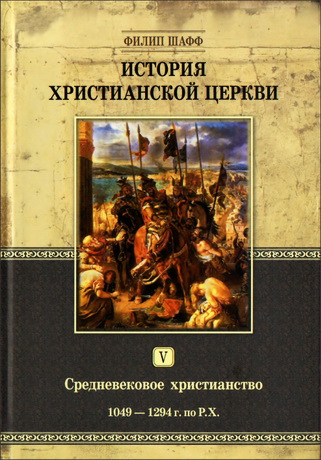
Cambridge Companions - Ancient and Medieval Philosophy Trends
Compare the following two questions, both of which greatly exercised ancient Greek and Roman thinkers:
- What is a good human life?
- Why isn’t the earth falling?
They appear about as different as any two questions could be. The first is one that most of us continue to consider important today. The second is not a question we are likely even to think worth asking: however little physics we know, we know enough to realize that the question itself rests on false suppositions.
Despite this and other contrasts, those who manage to get inside the subject – Greek and Roman philosophy – to which this book aims to provide an entry route should find that the two questions come to exercise an equal fascination. They may even find that the two of them have more in common than at first appears, as I shall suggest below.
Take the first of them, what a good human life is. How would you react to the answer that it should in principle be no harder to work out what makes a human life a good one than it is to work out what makes a doctor, a scalpel, an operation or an eye a good one? The latter kind of question is answered by first determining what the essential function of a doctor, a scalpel, an operation or an eye is, a good one simply being any that is such as to be successful in performing that function. Analogously, then, find out what is the function of a human being, or of a human life, and you will know what it is to be a good human being and to have a good human life. If, for example, man’s natural function is fundamentally social, a human life’s goodness will be defined accordingly; if intellectual, in a different way; if pleasure-seeking, in yet another way. Despite their very various answers, nearly all the major philosophers of antiquity were united in this same fundamental conviction: by studying human nature we can aspire to determine the true character of a good human life.
One common and understandable modern reaction is to protest that this kind of functional analogy confuses two radically different kinds of good, one moral, the other non-moral: the functional ‘goodness’ of a scalpel has nothing in common with the moral ‘goodness’ of a person, an action or a life. Some may go so far as to congratulate themselves that we today are no longer deaf to an equivocation that tricked even the greatest thinkers of antiquity.
The Cambridge Companion to Greek and Roman Philosophy
Edited by David Sedley, 2003
- Introduction. David Sedley
- 1. Argument in ancient philosophy. Jonathan Barnes
- 2. The Presocratics. Malcolm Schofield
- 3. The Sophists and Socrates. Sarah Broadie
- 4. Plato. Christopher Rowe
- 5. Aristotle. John M. Cooper
- 6. Hellenistic philosophy. Jacques Brunschwig and David Sedley
- 7. Roman philosophy. A. A. Long
- 8. Philosophy and literature. Martha C. Nussbaum
- 9. Late ancient philosophy. Frans A. J. De Haas
- 10. Philosophy and science. R. J. Hankinson
- 11. Philosophy and religion. Glenn W. Most
- 12. The legacy of ancient philosophy. Jill Kraye
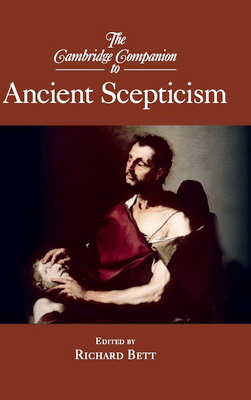
The Cambridge Companion to Ancient Scepticism
Edited by Richard Bett, 2010
- Introduction. Richard Bett
- I. Origins and Development
- 1. Antecedents in early Greek philosophy. Mi-Kyoung Lee
- 2. Pyrrho and early Pyrrhonism. Svavar Hrafn Svavarsson
- 3. Arcesilaus and Carneades. Harald Thorsrud
- 4. The sceptical Academy: decline and afterlife. Carlos Lévy
- 5. Aenesidemus and the rebirth of Pyrrhonism. R. J. Hankinson
- 6. Sextus Empiricus. Pierre Pellegrin
- II. Topics and Problems
- 7. Scepticism and belief. Casey Perin
- 8. Scepticism and action. Katja Maria Vogt
- 9. Scepticism and ethics. Richard Bett
- 10. Academics versus Pyrrhonists, reconsidered. Gisela Striker
- 11. The Pyrrhonian Modes. Paul Woodruff
- 12. Pyrrhonism and medicine. James Allen
- 13. Pyrrhonism and the specialized sciences. Emidio Spinelli
- III. Beyond Antiquity
- 14. The rediscovery and posthumous influence of scepticism. Luciano Floridi
- 15. Descartes’ transformation of the sceptical tradition. Michael Williams
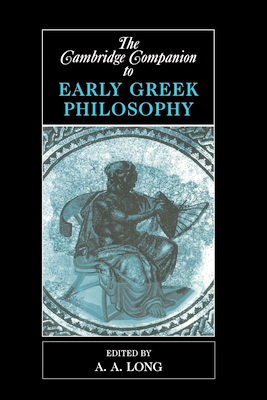
The Cambridge Companion To Early Greek Philosophy
Edited by A. A. Long, 1999
- 1. The scope of early Greek philosophy. A. A. LONG
- 2. Sources. JAAP MANSFELD
- 3. The beginnings of cosmology. KEIMPE ALGRA
- 4. The Pythagorean tradition. CARL A. HUFFMAN
- 5. Heraclitus. EDWARD HUSSEY
- 6. Parmenides and Melissus. DAVID SEDLEY
- 7. Zeno. RICHARD D. MCKIRAHAN JR.
- 8. Empedocles and Anaxagoras: Responses to Parmenides. DANIEL W. GRAHAM
- 9. The atomists. C. C. W. TAYLOR
- 10. Rational theology. SARAH BROADIE
- 11. Early interest in knowledge. J. H. LESHER
- 12. Soul, sensation, and thought. ANDRÉ LAKS
- 13. Culpability, responsibility, cause: Philosophy, historiography, and medicine in the fifth century. MARIO VEGETTI
- 14. Rhetoric and relativism: Protagoras and Gorgias. PAUL WOODRUFF
- 15. Protagoras and Antiphon: Sophistic debates on justice. FERNANDA DECLEVA CAIZZI
- 16. The poetics of early Greek philosophy. GLENN W. MOST
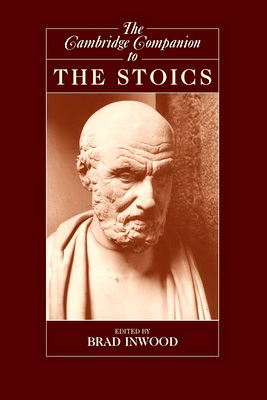
The Cambridge Companion to the Stoics
Edited by Brad Inwood, 2003
- Introduction: Stoicism, An Intellectual Odyssey. Brad Inwood
- 1. The School, from Zeno to Arius Didymus. David Sedley
- 2. The School in the Roman Imperial Period. Christopher Gill
- 3. Stoic Epistemology. R. J. Hankinson
- 4. Logic. Susanne Bobzien
- 5. Stoic Natural Philosophy (Physics and Cosmology). Michael J. White
- 6. Stoic Theology. Keimpe Algra
- 7. Stoic Determinism. Dorothea Frede
- 8. Stoic Metaphysics. Jacques Brunschwig
- 9. Stoic Ethics. Malcolm Schofield
- 10. Stoic Moral Psychology. Tad Brennan
- 11. Stoicism and Medicine. R. J. Hankinson
- 12. The Stoic Contribution to Traditional Grammar. David Blank and Catherine Atherton
- 13. The Stoics and the Astronomical Sciences. Alexander Jones
- 14. Stoic Naturalism and Its Critics. T. H. Irwin
- 15. Stoicism in the Philosophical Tradition: Spinoza, Lipsius, Butler. A. A. Long
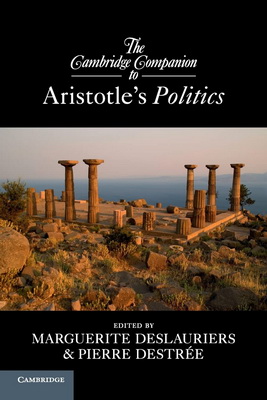
The Cambridge Companion to Aristotle’s Politics
Edited by Marguerite Deslauriers and Pierre Destr´ee, 2013
- Introduction. Marguerite Deslauriers, Pierre Destrée
- 1 - The political character of Aristotle's ethics. Dorothea Frede
- 2 - The rule of reason. Fred D. Miller
- 3 - Economy andprivate property. Karen Margrethe Nielsen
- 4 – Naturalslavery. Pierre Pellegrin, E.Zoli Filotas
- 5 - Political unity and inequality. Marguerite Deslauriers
- 6 - Civic virtue: citizenship, ostracism, and war. Andrés Rosler
- 7 - The common good. Donald Morrison
- 8 - Natural, ethical, and political justice. Marco Zingano
- 9 - Law, governance, and political obligation. Christoph Horn
- 10 - Claims to rule: the case of the multitude. Melissa Lane
- 11 – Faction. Antony Hatzistavrou
- 12 - Education, leisure, and politics. Pierre Destrée
- 13 - Deliberating and acting together. Bryan Garsten
- 14 - Aristotle and Rawls on the common good. Richard Kraut
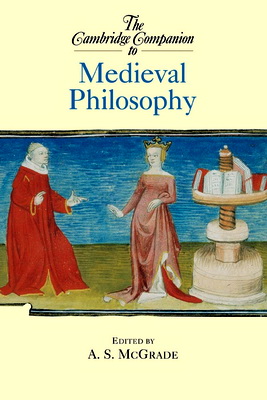
The Cambridge Companion to Medieval Philosophy
Edited by A.S. McGrade, 2006
- Introduction. A. S. McGrade
- 1 - Medieval philosophy in context. Steven P. Marrone
- 2 - Two medieval ideas: eternity and hierarchy. John Marenbon, D. E. Luscombe
- 3 - Language and logic. J. Ashworth
- 4 - Philosophy in Islam. Thérèse-Anne Druart
- 5 - Jewish philosophy. Idit Dobbs-Weinstein
- 6 - Metaphysics: God and being. Stephen P. Menn
- 7 - Creation and nature. Edith Dudley Sylla
- 8 - Natures: the problem of universals. Gyula Klima
- 9 - Human nature. Robert Pasnau
- 10 - The moral life. Bonnie Kent
- 11 - Ultimate goods: happiness, friendship, and bliss. James McEvoy
- 12 - Political philosophy. Annabel S. Brett
- 13 - Medieval philosophy in later thought. J. Fitzpatrick, John Haldane
- 14 - Transmission and translation. Thomas Williams
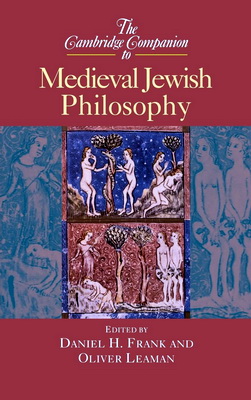
The Cambridge Companion to Medieval Jewish Philosophy
Edited by Daniel H. Frank and Oliver Leaman, 2003
PART I - BACKGROUND AND CONTEXT
- 1 - Introduction to the study of medieval Jewish philosophy. Oliver Leaman
- 2 - The biblical and rabbinic background to medieval Jewish philosophy. David Shatz
- 3 - The Islamic context of medieval Jewish philosophy. In memory of Franz Rosenthal. Joel L. Kraemer
PART II - IDEAS, WORKS, AND WRITERS
- 4 - Saadya and Jewish kalam. Sarah Stroumsa
- 5 - Jewish Neoplatonism: Being above Being and divine emanation in Solomon ibn Gabirol and Isaac Israeli. Sarah Pessin
- 6 - Judah Halevi and his use of philosophy in the Kuzari. Barry S. Kogan
- 7 - Maimonides and medieval Jewish Aristotelianism. Daniel H. Frank
- 8 - Maimonides and the sciences. Tzvi Langermann
- 9 - Medieval Jewish political thought. Menachem Lorberbaum
- 10 - Judaism and Sufism. Paul B. Fenton
- 11 - Philosophy and kabbalah: 1200–1600. Hava Tirosh-Samuelson
- 12 - Arabic into Hebrew: The Hebrew translation movement and the influence of Averroes upon medieval Jewish thought. Steven Harvey
- 13 - Philosophy in southern France: Controversy over philosophic study and the influence of Averroes upon Jewish thought. Gregg Stern
- 14 - Conservative tendencies in Gersonides’ religious philosophy. Charles H. Manekin
PART III - THE LATER YEARS
- 15 - The impact of Scholasticism upon Jewish philosophy in the fourteenth and fifteenth centuries. T. M. Rudavsky
- 16 - Jewish philosophy and the Jewish-Christian philosophical dialogue in fifteenth-century Spain. Ari Ackerman
- 17 - Hasdai Crescas and anti-Aristotelianism. James T. Robinson
- 18 - The end and aftereffects of medieval Jewish philosophy. Seymour Feldman
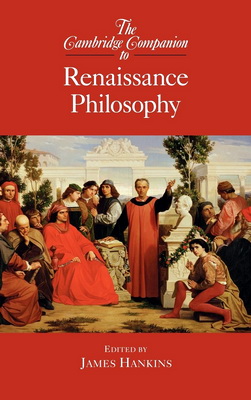
The Cambridge Companion to Renaissance Philosophy
Edited by James Hankins, 2007
- 1. Introduction. J AMES HANKINS
PART I. CONTINUITY AND REVIVAL
- 2. The philosopher and Renaissance culture. ROBERT BLACK
- 3. Humanism, scholasticism, and Renaissance philosophy. J AMES HANKINS
- 4. Continuity and change in the Aristotelian tradition. LUCA BIANCHI
- 5. The revival of Platonic philosophy. CHRISTOPHER S. CELENZA
- 6. The revival of Hellenistic philosophies. JILL KRAYE
- 7. Arabic philosophy and Averroism. DAG NIKOLAUS HASSE
- 8. How to do magic, and why: philosophical prescriptions. BRIAN P. COPENHAVER
PART II. TOWARD MODERN PHILOSOPHY
- 9. Nicholas of Cusa and modern philosophy. DERMOT MORAN
- 10. Lorenzo Valla and the rise of humanist dialectic. LODI NAUTA
- 11. The immortality of the soul. PAUL RICHARD BLUM
- 12. Philosophy and the crisis of religion. PETER HARRISON
- 13. Hispanic scholastic philosophy. JOHN P. DOYLE
- 14. New visions of the cosmos. MIGUEL A. GRANADA
- 15. Organizations of knowledge. ANN M. BLAIR
- 16. Humanistic and scholastic ethics. DAVID A. LINES
- 17. The problem of the prince. ERIC NELSON
- 18. The significance of Renaissance philosophy. JAMES HANKINS
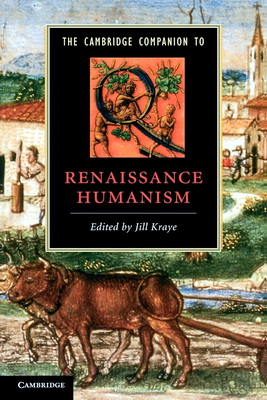
The Cambridge Companion to Renaissance Humanism
Edited by Jill Kraye, 1996
- 1. The origins of humanism. NICHOLAS MANN
- 2. Classical scholarship. MICHAEL D. REEVE
- 3. Humanism in script and print in the fifteenth century. MARTIN DAVIES
- 4. The humanist reform of Latin and Latin teaching. KRISTIAN JENSEN
- 5. Humanist rhetoric and dialectic. PETER MACK
- 6. Humanists and the Bible. ALASTAIR HAMILTON
- 7. Humanism and the origins of modern political thought. JAMES HANKINS
- 8. Philologists and philosophers. JILLKRAYE
- 9. Artists and humanists. CHARLESHOPE and ELIZABETH MCGRATH
- 10. Vernacular humanism in the sixteenth century. WARREN BOUTCHER
- 11. The new science and the traditions of humanism. ANTHONY GRAFTON
- 12. Humanism and Italian literature. M. L.MCLAUGHLIN
- 13. Humanism and English literature in the fifteenth and sixteenth centuries. CLARE CARROLL
- 14. Humanism and seventeenth-century English literature. JOSEPH LOEWENSTEIN
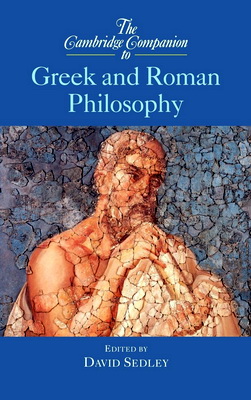

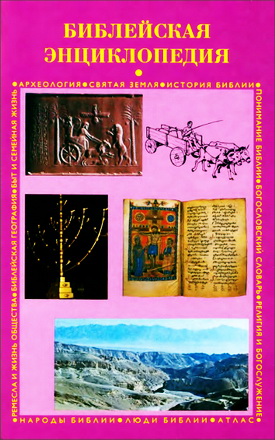
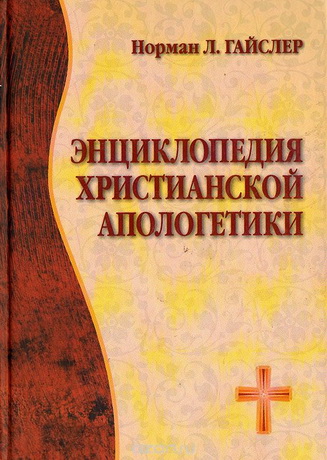
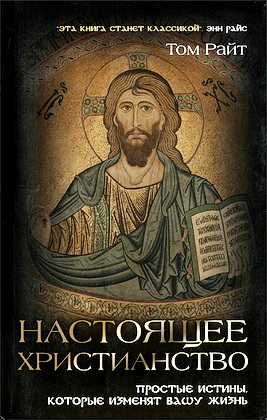
Комментарии (1 комментарий)
Спасибо за очередную страницу Cambridge Companions!